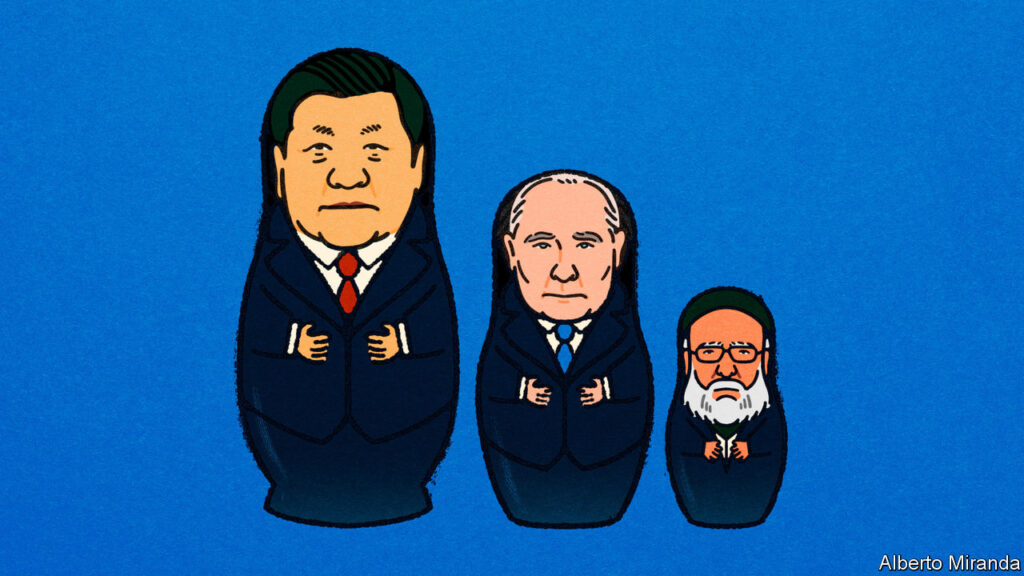Vladimir Putin, the president of Russia, and Ebrahim Raisi, his Iranian counterpart, share a number of similarities. They are both part of a select group of leaders who have personally been targeted by American sanctions. Despite not being frequent travelers, both leaders have made recent visits to China. Additionally, they appear to be developing a closer relationship with each other. In December, they met in the Kremlin to discuss the conflict in Gaza, and on March 18th, Mr. Raisi wasted no time in congratulating Mr. Putin on his “decisive” election victory.
Throughout history, Russia, Iran, and China have not always had friendly relations. As imperialist powers, they often interfered in each other’s regions and competed for control over trade routes in Asia. However, the dynamics have shifted due to actions taken by the United States. After withdrawing from a nuclear deal with Iran in 2018, the US reimposed trade sanctions on the country in 2020. Additional penalties were announced in January to punish Iran for its support of Hamas and Houthi rebels. Furthermore, Russia faced Western sanctions in 2022 following its invasion of Ukraine, and these sanctions have since been strengthened. Meanwhile, China is also dealing with its own set of restrictions, which could potentially increase if Donald Trump regains the presidency in November. With a common adversary in the US, the trio now aims to promote a shared foreign policy centered around supporting a multipolar world that is not dominated by America. They believe that deeper economic ties will serve as the foundation for their united front.
Despite their historical differences, Russia, Iran, and China are now working together to counter the influence of the United States. They view a multipolar world as a more balanced and fair international order, compared to the current American-dominated system. The trio recognizes the importance of economic cooperation in solidifying their alliance and achieving their shared goals. By strengthening their economic ties, they hope to decrease their dependence on the US and foster greater self-sufficiency.
Another key aspect of the alliance between Russia, Iran, and China is their opposition to US sanctions and interference in global affairs. They see American sanctions as a form of aggression and an infringement on their sovereign rights. By uniting against these sanctions, the trio aims to protect their own interests and challenge US dominance in the international arena. Additionally, they believe that by standing together, they can increase their bargaining power and assert themselves as major players on the world stage.
In conclusion, the growing alliance between Russia, Iran, and China is a testament to the shifting dynamics of global power. These three countries, once historical rivals, are now working together to challenge US dominance and promote a multipolar world order. By strengthening their economic ties and coordinating their foreign policies, they hope to create a more balanced and equitable international system. Despite facing obstacles and opposition from the US, the trio remains committed to their shared vision of a world where no single country holds all the power.



